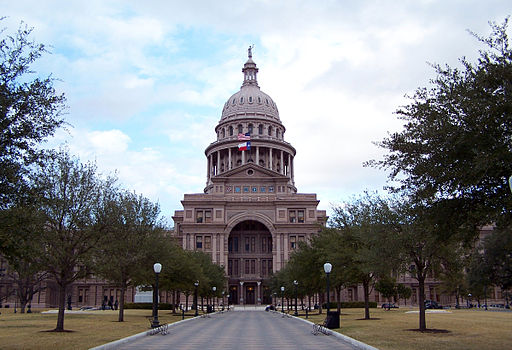On July 12, 2021, at least 51 of the 67 Democrats in the Texas House of Representatives (the number needed to break quorum) left the state for Washington D.C. ahead of expected votes on House Bill 3 and Senate Bill 1. The bills being considered are voting-related legislation including provisions related to early voting, elections officers, voter registration, and voting systems. At 10 a.m. on Tuesday, July 13, the House conducted a test vote that 80 of the 150 House members participated in, four of whom were Democrats.
Texas House Democratic Caucus Chairman Chris Turner, Mexican American Legislative Caucus Chairman Rafael Anchía (D), Texas Legislative Black Caucus Chairwoman Nicole Collier (D), Legislative Study Group Caucus Chairman Garnet Coleman (D), and Dean Senfronia Thompson (D) released a joint statement on the decision to break quorum and go to Washington D.C. saying, "Today, Texas House Democrats stand united in our decision to break quorum and refuse to let the Republican-led legislature force through dangerous legislation that would trample on Texans’ freedom to vote. We are now taking the fight to our nation’s Capitol. We are living on borrowed time in Texas. We need Congress to act now to pass the For the People Act and the John Lewis Voting Rights Act to protect Texans — and all Americans — from the Trump Republicans’ nationwide war on democracy."
Governor Greg Abbott (R) responded to the walkout saying in a statement, "Texas Democrats’ decision to break a quorum of the Texas Legislature and abandon the Texas State Capitol inflicts harm on the very Texans who elected them to serve," and that, "the Democrats must put aside partisan political games and get back to the job they were elected to do. Their constituents must not be denied these important resources simply because their elected representative refused to show up to work."
The Texas House of Representatives requires that two-thirds of the body be present for a quorum. Democrats control 67 of the 150 House seats. This is the second walkout House Democrats have held in 2021; the first took place on May 30, when all 67 members of the Democratic caucus left the chamber during consideration of another package of voting-related legislation, Senate Bill 7. Legislators left the chamber around 10:30 p.m., leaving it without a quorum ahead of a midnight deadline for passing legislation for the session. The walkout came following a meeting between the Democratic caucus and Speaker Dade Phelan (R). Following the closure of the regular session, Gov. Abbott called a special session beginning on July 8 and lasting for up to 30 days, to take up the legislation again.
The last time there was a walkout of the Texas legislature before 2021 was in 2003 when 11 Democratic members of the Texas State Senate and 51 Democratic members of the Texas House of Representatives did not come to a scheduled legislative session to prevent the passage of a redistricting plan they claimed would have benefited Republicans. That walkout lasted for 43 days and ended when state Sen. John Whitmire (D) returned to the chamber and a quorum was reached.
There have been six other noteworthy legislative walkouts since 2000 (noteworthy walkouts are those where legislators left the state for at least a week or received significant national media attention). Four of the walkouts occurred in Oregon (2021, 2020, 2019, and 2001); one in Indiana (2011), and one in Wisconsin (2011).
The Oregon walkouts focused on proposals related to COVID-19 (2021), a bill to cap greenhouse gas emissions (2020), a cap-and-trade bill (2019), and a Congressional redistricting plan (2001). Three were conducted by Republican state senators (2021, 2020, 2019), and one by Democratic state representatives (2001). The walkouts were resolved by killing the contested legislation in 2020, 2019, and 2001; and by legislators returning to the chamber in 2021.
In 2011, walkouts over right-to-work legislation occurred in Indiana and Wisconsin. The Indiana walkout included 37 Democratic members of the House who did not attend a scheduled legislative session to prevent passage of the legislation, and ended after six weeks when the legislation was killed. The Wisconsin walkout involved 14 Democratic members of the Wisconsin State Senate who did not come to a scheduled legislative session to prevent passage of the legislation and ended after five weeks when Republicans removed fiscal provisions from the right-to-work legislation, lowering the quorum required to hold a vote. The Democrats returned three days after the legislation passed.
Noteworthy state legislative walkouts
Click here to read House Bill 3.
Click here to read Senate Bill 1.
Additional reading



